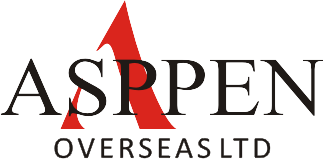Canada offers a range of immigration pathways for individuals wishing to live, work, study, or settle permanently in the country. Here's an overview covering visa types, eligibility criteria, the application process, costs, and tips for immigrating to Canada:
Visa Types:
- Express Entry System:
- Federal Skilled Worker Program (FSWP)
- Federal Skilled Trades Program (FSTP)
- Canadian Experience Class (CEC)
- Provincial Nominee Programs (PNPs): Each Canadian province and territory (except Quebec) has its own immigration programs designed to meet its specific labor market and economic needs.
- Family Sponsorship:
- Spouse or Common-Law Partner Sponsorship
- Parent and Grandparent Sponsorship
- Study Permits: For international students enrolled in a Canadian educational institution.
- Work Permits: Temporary work permits for individuals who have a job offer from a Canadian employer.
- Refugee and Humanitarian Programs: Including the Refugee Sponsorship Program and the Protected Person in Canada (PPC) program.
Eligibility Criteria:
- Age: There is no specific age requirement for most immigration programs, although some may have age limits.
- English/French Proficiency: Applicants may need to demonstrate proficiency in English and/or French, Canada's official languages, through standardized tests like IELTS or CELPIP.
- Education: Many programs require applicants to have their foreign education credentials assessed by designated organizations to ensure they are equivalent to Canadian standards.
- Skills and Work Experience: Points are often awarded based on factors like work experience, with higher points awarded for skilled work experience in occupations in demand in Canada.
- Spouse/Partner: Some immigration programs allow applicants to include their spouse or common-law partner in their application.
Visa Process:
- Express Entry System:
- Create an online profile outlining your skills, work experience, education, language ability, and other relevant information.
- Receive a Comprehensive Ranking System (CRS) score based on your profile.
- Candidates with the highest CRS scores are invited to apply for permanent residency through regular draws held by Immigration, Refugees, and Citizenship Canada (IRCC).
- Provincial Nominee Programs (PNPs):
- Apply to the province or territory where you wish to settle and be nominated for permanent residency.
- Criteria and application processes vary by province/territory.
- Family Sponsorship:
- The Canadian citizen or permanent resident sponsor must apply to sponsor their family member, who applies for permanent residency.
Costs:
- Visa application fees vary depending on the type of visa or immigration program.
- Additional costs may include language tests, educational credential assessments, medical exams, police certificates, and immigration consultant or lawyer fees.
Tips:
- Research Immigration Programs: Explore the different immigration pathways available to determine which one best suits your circumstances and goals.
- Improve Language Skills: Enhance your English and/or French language skills to maximize your CRS score or meet language proficiency requirements.
- Gain Canadian Work Experience: Consider obtaining Canadian work experience through temporary work permits or the International Experience Canada (IEC) program to improve your chances of qualifying for permanent residency.
- Network and Connect: Establish connections with potential employers, provincial immigration authorities, or Canadian communities to increase your chances of success.
- Seek Professional Advice: Consider consulting with a qualified immigration consultant or lawyer to guide you through the application process and ensure compliance with Canadian immigration laws and regulations.
By understanding the various visa options, eligibility criteria, and application processes, you can make informed decisions and increase your chances of successfully immigrating to Canada.


